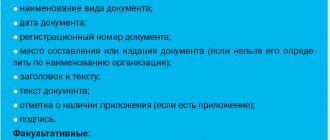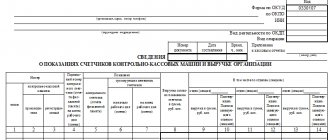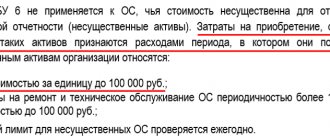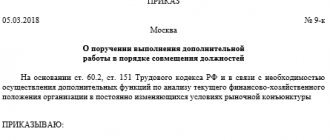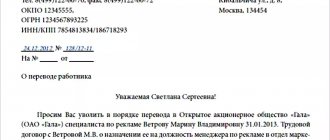Is it necessary to apply professional standards in modern organizations?
Professional standards are qualification requirements established at the level of legal acts for employees of certain professions, compliance with which is necessary from the point of view of these employees performing their labor functions (Article 195.1 of the Labor Code of the Russian Federation). Professional standards are mandatory for use by employing firms in two cases (Article 195.3 of the Labor Code of the Russian Federation, letter of the Ministry of Labor of the Russian Federation dated April 4, 2016 No. 14-0/10/B-2253):
- the employing company has positions on its staff for which benefits and compensation should be provided - for example, for hazardous working conditions;
- the use of professional standards is prescribed by a specific legal act.
The first rule should be followed by all enterprises, regardless of whether they are private or public (municipal). The second norm in practice characterizes legislative regulation mainly of those business entities that have a direct connection with state or local authorities.
The Government of Russia, by resolution No. 584 of June 27, 2016, prescribed:
- all state and municipal institutions, funds, as well as enterprises, companies and corporations that belong to state or municipal authorities (with the right of ownership of more than 50% of the authorized capital), apply professional standards in terms of qualification requirements;
- until 01/01/2020, the specified business entities should develop and implement plans for the implementation of professional standards;
- the specified business entities apply professional standards for new positions in accordance with the plan and provisions of Resolution No. 584.
Thus, professional standards are now mandatory:
- for state and municipal institutions, funds;
- for companies, enterprises and corporations, the authorized capital of which is more than 50% owned by state or municipal bodies;
- for all employer firms - including private ones, in which there are positions that provide the employee with benefits established by law;
- for business entities - private, state, municipal, for positions for which adherence to professional standards is prescribed by separate regulations
So, for example, in accordance with Art. 7 of Law No. 402-FZ dated December 6, 2021, professional standards are applicable to chief accountants of public joint stock companies, insurance companies, non-state pension funds, banks and financial organizations, as well as ordinary outsourced accountants.
In other cases, it is legitimate to consider professional standards as recommended for use (this position is supported by the Ministry of Labor of the Russian Federation in letter No. 14-0/10/B-2253).
Let us next consider for which positions professional standards can be established.
In what cases may a private company not apply professional standards?
If the Labor Code, as well as federal regulations, do not establish requirements for the qualifications of an employee for a given position, and also if the law does not provide him with any benefits, social guarantees or, conversely, restrictions, then the employer has the right not to apply professional standards. This norm is prescribed in Article 195.3 of the Labor Code of the Russian Federation.
For example, Article 55.5 of the Town Planning Code of the Russian Federation specifies requirements for specialists in organizing engineering surveys, organizing architectural and construction design, and organizing construction. Therefore, the implementation of the professional standard in this case is a prerequisite.
Got some free time?
Then use it wisely! Get an education while everyone else is running after buckwheat!
For which positions and industries are professional standards required?
The list of professional standards currently approved is huge. In particular, the relevant standards have been adopted for positions in the following areas:
- education;
- healthcare;
- culture, art;
- social services;
- sport;
- connection;
- IT, communications;
- management;
- finance;
- jurisprudence;
- media activities;
- security activities;
- agriculture, forestry, fish farming, hunting, fishing;
- construction;
- housing and communal services sector;
- transport;
- oil and gas production and processing;
- electric power industry;
- light, textile industry;
- food industry;
- woodworking industry, furniture industry;
- nuclear, rocket industry;
- chemical industry;
- metallurgy;
- mechanical engineering;
- shipbuilding;
- automotive industry;
- provision of services to the population, etc.
Thus, professional standards have been adopted for positions in which specialists work in virtually all major sectors of the Russian economy. In general, professional standards are adopted by the Ministry of Labor of the Russian Federation and approved by separate orders. For example, the professional standard “Accountant”, applicable in the cases noted above, provided for by Law No. 402-FZ, was approved by Order of the Ministry of Labor of the Russian Federation dated December 22, 2014 No. 1061n.
How to enter a professional standard? We discuss using the example of the professional standard “Human Resources Management Specialist”
Without being obliged to apply the professional standard, the employer still decides to implement it in his organization. But it faces certain problems...
Using the example of the professional standard “Human Resources Management Specialist”, which is being introduced for a human resources inspector, we will consider the general concept of its introduction, the problematic issues associated with this and, of course, draw the appropriate conclusions[1].
Depending on the number of staff units of employees involved in personnel work, there is a difference in the application of the professional standard. If the staff has a personnel department, the study of the professional standard “Human Resources Management Specialist” occurs in relation to each position in terms of its functions.
For example, regarding the functions of a specialist in corporate social policy, section 3.6 of the professional standard “Human Resources Management Specialist” is subject to application; in relation to the head of a structural unit (according to the Qualification Directory of Positions of Managers, Specialists and Other Employees, approved by Resolution of the Ministry of Labor of Russia dated 08/21/1998 No. 37 (as amended on 02/12/2004; hereinafter referred to as KSDS), - head of the personnel department) - section 3.7 of this same professional standard. With this order everything is simple.
However, in many organizations, HR is handled by one person. According to the staffing table, his position is most often called “HR inspector”, “HR administration specialist”, etc. In such a situation, the employee in one person performs all labor functions related to working with personnel:
- selects personnel;
- arranges hiring and dismissal;
- prepares certification;
- keeps work books, etc. -
that is, it combines the functions previously provided for by the KSDS for all positions related to personnel work (Table 1), and now for all positions provided for by the professional standard “Human Resources Management Specialist”. In this case, it is much more difficult to implement the professional standard.
Applying the professional standard to the position of “HR inspector,” which they are just planning to introduce into the staffing table, is simple and will not cause difficulties. When developing a job description, the basis is not the KSDS, but the professional standard “Human Resources Management Specialist”[2].
It is more difficult to introduce a professional standard for a position occupied by a specific employee. This is due to the solution of the following issues:
- Is it necessary to change the name of the position in the staffing table, because personnel issues in an organization can be dealt with by an inspector of the personnel department, a specialist in personnel administration, and other employees.
- Is it necessary to expand (or reduce) the list of labor functions and job responsibilities of an employee involved in working with the organization’s personnel?
- Is it necessary to change the requirements regarding employee qualifications?
- Is it legal to introduce such changes without the employee’s consent?
- If an employee does not agree to the changes caused by the implementation of the professional standard, is it possible (or necessary) to terminate the employment contract with him?
And now let's talk about everything in order.
CHANGING THE NAME IS HALF THE WORK
Drawing up an action plan for the implementation of the professional standard begins with the question of renaming the employee’s position.
The answer is obvious: since the implementation of the professional standard is not carried out at the request of a regulatory document, but by the free decision of the employer, renaming the position is by no means mandatory. Moreover, in most cases there is no need for this at all.
Let’s compare the titles offered by the professional standard “HR Specialist” and KSDS (Table 1):
If the professional standard “Human Resources Management Specialist” is implemented by agreement of the parties, all documentation accompanying this process is published within the framework of Art. 72 of the Labor Code of the Russian Federation, when changes to the terms of the employment contract determined by the parties, including transfer to another job, are allowed only by agreement of the parties to the employment contract.
In this case, there are no nuances - the employer at any time has the right to change the job title, list of job responsibilities, qualification requirements for the position and other parameters of the job description.
It’s another matter when the employer introduces a professional standard on its own initiative, and the employee is only given the right to agree or refuse to work according to the professional standard, that is, the procedure provided for in Art. 74 Labor Code of the Russian Federation.
There are two polar points of view here:
- Renaming a position is a change in job function. Consequently, a transfer to another position is formalized.
- Renaming a position without any other changes is not a change in job function. There is no need to complete a transfer[3].
Some employers believe that to implement the professional standard it is enough to rename the position without making any changes to the job description or employment contract. This is a possible point of view. But we believe that renaming a position without adjusting job responsibilities is half the battle.
COMBINATION OF KSDS POSITIONS - ONE PROFESSIONAL STANDARD
As we can see from Table 1, the KSDS provides for four positions, each of which is related to personnel work[4]. The professional standard “Human Resources Management Specialist” also provides for several options for job titles and the distribution of labor functions and labor actions among them.
But since our immediate task is to apply the professional standard for a single position in the state, we will study the description of all labor functions included in the professional standard (functional map of the type of professional activity) “Human Resources Management Specialist” (Table 2).
This is a brief description of job functions. Further in the professional standard, each of them is described in more detail.
For example, the labor function “Maintaining organizational and administrative documentation for personnel” includes not one, but several actions at once:
- processing and analysis of incoming personnel documentation;
- development and execution of personnel documentation (primary, accounting, planning, social security, organizational, administrative);
- registration, accounting and current storage of organizational and administrative documentation for personnel.
CONCLUSION Comparing the labor functions and qualification characteristics given in Table 2 for four positions from the KSDS, we see that the professional standard under consideration combines the labor functions of all four positions of the KSDS.
By introducing the professional standard “Human Resources Management Specialist”, the employer will also be able to optimize the need for personnel.
IMPORTANT STEP - COMPARISON OF FUNCTIONS
Before you start implementing the professional standard “Human Resources Management Specialist”, you should compare the initial data with data for a similar position in the KSDS - perhaps the professional standard provides the same functions as in the KSDS, and the changes will be insignificant.
Since an employee engaged in personnel work has a lot of functions, both according to the professional standard “Human Resources Management Specialist” and for the positions provided for by the KSDS, we will make a comparison selectively according to two parameters (Table 3):
- personnel accounting and documentation function;
- personnel selection function.
When conducting the analysis, labor functions for the positions “head of the human resources department”, “human resources specialist”, “labor economist”, etc. were taken from the KSDS in a consolidated form.
As you can see, labor actions differ in scope. Thus, personnel selection activities are more specified in the professional standard, and personnel accounting activities are detailed in the KSDS in a familiar and understandable form.
A detailed analysis of all labor actions within the framework of a labor function will help you see the difference: the KSDS contains more generalized descriptions of labor actions, while the professional standard describes all (possible, necessary) stages within the framework of one action.
CONCLUSION If the professional standard “Human Resources Management Specialist” is introduced in relation to the only staffing unit in an organization engaged in work with personnel, then it is easier and more expedient to introduce it completely, without looking for items in the changed job description that could be left in the form in in which they were formed on the basis of the KSDS.
QUALIFICATION ISSUES ARE NOT SO ACUTE
Based on the professional standard “Human Resources Management Specialist”, we note that the qualification requirement varies depending on the possible title of the position (profession) and the set of labor actions.
For example, for a HR specialist, secondary vocational education (training program for mid-level specialists) is sufficient. For a personnel manager, professional standards already offer the first stage of higher education—a bachelor’s degree.
This is worth taking into account when the professional standard is being implemented in relation to several staff units involved in working with personnel, and the organization has a full-fledged personnel department of 4–5 or more positions.
The professional standard establishes qualification levels. Thus, the fifth level is, for example, for a specialist in personnel records management, a personnel specialist, the sixth is for a personnel manager, and the seventh is for a department head[5].
When the application of a professional standard is not mandatory, the employer, implementing it, has the right to change its qualification requirements (including in relation to an already working employee), but dismiss the employee for non-compliance with the requirements under clause 3, part 1 of Art. cannot be carried out without certification .
We should not forget the provisions of clause 10 of the KSDS: persons who do not have special training or work experience established by the qualification requirements, but have sufficient practical experience and perform efficiently and in full the duties assigned to them, on the recommendation of the certification commission in the manner exceptions can be appointed to appropriate positions in the same way as persons with special training and work experience.
CONCLUSION The requirement for an employee’s qualifications when introducing the professional standard “Human Resources Management Specialist” may not change - it all depends on the decision of the employer.
DECISION IS MADE
Let’s assume that the employer decides to apply the professional standard “Human Resources Management Specialist” to the position of the only HR employee in the state, without excluding anything from it, allowing only some adjustments in terms of qualification requirements.
Theoretically, there are two ways :
- By agreement of the parties (recommended method).
- At the initiative of the employer (causes controversy, not recommended).
We introduce a professional standard by agreement of the parties
It is necessary to perform several actions in turn:
- bring the staffing table into line with the titles of positions for which professional standards will be introduced; issue an order approving the new staffing table.
The title of the only position of an employee involved in personnel work may sound like “human resources management specialist” or one of those listed in the left column of Table 1 (including HR manager);
- based on the professional standard “Human Resources Management Specialist”, develop a new job description for this position (selected title) and familiarize the employee with it against signature;
- if necessary, make changes to other local acts of the employer;
- prepare and sign an additional agreement with the employee (example 2);
- familiarize the employee with the new job description against signature;
- issue an order to change the name of the position in the staffing table;
- make the necessary changes to the employee’s work book and his personal card[7].
We are introducing a professional standard at the initiative of the employer
When, for reasons related to changes in organizational or technological working conditions (changes in equipment and production technology, structural reorganization of production, other reasons), the terms of the employment contract determined by the parties cannot be preserved, they can be changed at the initiative of the employer, with the exception of changes in the labor function employee (Part 1 of Article 74 of the Labor Code of the Russian Federation).
If we take into account that the professional standard “Human Resources Management Specialist” combines functions for all four KSDS positions in the field of personnel work, then we can state the following: when introducing the professional standard for a single position in the state, the labor function will most likely be changed, incl. hours and without renaming the position. The employer is prohibited from doing this unilaterally, applying the provisions of Art. 74 Labor Code of the Russian Federation.
The new job description will not only clarify the employee’s previous job responsibilities, but also expand them. A significant change in job responsibilities in the job description of a personnel inspector when introducing a professional standard can be qualified as a violation of the provisions of Art. 57, 60, 72 Labor Code of the Russian Federation[8].
For a unilateral change in an employee’s labor function, the employer may be held administratively liable under Art. 5.27 of the Code of Administrative Offenses of the Russian Federation for violation of labor legislation[9].
The only thing that will not violate employee rights is changing qualification requirements and clarifying job responsibilities. However, due to the volume and content of the professional standard “Human Resources Management Specialist”, such a small quantity and quality of changes will not achieve the main goal - the implementation of the professional standard.
CONCLUSION Introduction of the professional standard “Human Resources Management Specialist” in full to a position already existing in the organization’s staffing table, occupied by an employee, unilaterally at the initiative of the employer within the framework of Art. 74 of the Labor Code of the Russian Federation is impossible, and its application is illegal.
[1] This article discusses the option of introducing a professional standard when its introduction is only recommended and not mandatory due to legal requirements. — Approx. author.
[2] Either both documents or one of them.
[3] Appeal ruling of the Supreme Court of the Komi Republic dated July 22, 2013 in case No. 33-3857/2013.
[4] There is another obscure position “labor technician”, which is not directly related to personnel and therefore is not taken into account by us.
[5] According to KSDS - head of the personnel department. It is assumed that you have a higher education and at least five years of work experience in the field of personnel management.
[6] Inconsistency of the employee with the position held or the work performed due to insufficient qualifications confirmed by certification results.
[7] In our case, this will be done by the newly appointed HR manager himself. — Approx. author.
[8] Ruling of the Supreme Court of the Komi Republic dated July 16, 2012 in case No. 33-2986AP/2012.
[9] Decision of the Sverdlovsk Regional Court of March 30, 2016 in case No. 72-422/2016.
Mandatory professional standards: implementation
An enterprise that, due to legal requirements, is obliged to apply professional standards must introduce them into its personnel management model. If it is state or municipal, then the algorithm for such actions is approved by Resolution No. 584. It contains instructions to state or municipal organizations:
- develop a plan for the implementation of professional standards;
- implement it before 01/01/2020;
- ensure the application of professional standards in new positions in accordance with the plan.
Thus, organizations formed before 2022 were obliged to bring their personnel management systems in accordance with Resolution No. 584. In practice, this could happen through the issuance by employers of orders on the implementation of professional standards, according to which responsible employees were required to develop and implement an appropriate plan. Orders could be supplemented with special provisions defining how responsible employees should act when implementing corporate standards established by the order.
To solve the tasks provided for by the order, commissions or working groups of specialists could be organized - this could also be fixed by a separate order and a provision supplementing it.
State and municipal organizations created starting from January 1, 2022 must ensure that human resource management systems comply with the requirements set out in Resolution No. 584, from the moment of establishment by higher structures. And in the course of activities, monitor changes in existing professional standards, as well as implement emerging new ones. First of all, using the register of professional standards, which is available on the website of the Russian Ministry of Labor. There you can also get acquainted with draft professional standards and prepare for their implementation even before their official approval.
The introduction of new professional standards can be carried out in an institution in accordance with a special schedule based on the orders of the head, as well as taking into account the action plan for the implementation of a particular professional standard.
WHO NEEDS PROFESSIONAL STANDARDS AND WHY?
Professional standards appeared in the Labor Code of the Russian Federation back in 2012, but then few people paid attention to them. And only 2014 marked the beginning of the active development of this “innovation”.
This happened because some areas of production and services can become very dangerous if an unskilled worker or specialist, or even worse, an undertrained manager, is allowed into them. Our education does not keep pace with the development of production. Moreover, not everyone works in the specialty they received at the educational institution.
Against this background, one can often hear frightening statements that workers who do not meet professional standards should be fired immediately and their managers punished.
And yet, let’s look at this “terrible” phenomenon - professional standards - calmly and without panic.
They do not themselves become mandatory immediately after approval. There are two cases when an employer is required to follow them. Let's take a closer look at them.
Requirements for employee qualifications are specified in the regulatory legal act
If there is a regulatory legal act at the federal level, which describes qualification requirements even without a professional standard, then the professional standard is also subject to application (Part 1 of Article 195.3 of the Labor Code of the Russian Federation).
For example, it is unlikely that a person with a specialty as a plumber will diagnose patients. Qualification requirements are established not only for doctors, but also for pharmacists, teachers, lawyers, transport drivers, etc. As well as for all workers who perform work underground. And also chief accountants of PJSC (formerly OJSC), insurance organizations, banks, non-state pension funds (not all chief accountants).
But the relevant organizations already fulfilled the requirements of these regulations regarding the qualifications of their employees. So the introduction of professional standards will not greatly affect their activities.
Thus, from Part 1 of Art. 195.3 of the Labor Code of the Russian Federation it follows that professional standards are transnormative in nature and, by applying regulatory documents, we automatically apply professional standards to the extent that they are mandatory for use. The rest of the professional standards are advisory in nature.
Compensation, benefits or restrictions are established for a position or profession
According to paragraph 3, part 2, art. 57 of the Labor Code of the Russian Federation, if 1) for a specific position or profession 2) by federal law 3) compensation, benefits or there are any restrictions, then comply with the professional standard or the Unified Tariff and Qualification Directory of Work and Professions of Workers (UTKS) and the Unified Qualification Directory of Positions managers, specialists and employees (EKS) must:
• names of positions, professions, specialties;
• qualification requirements for them.
The answer to the question of what is meant by restrictions and compensations can be found in the section “Typical questions and answers on the application of professional standards” on the website of the All-Russian Research Institute of Labor of the Ministry of Labor of Russia:
For example, the provision of reduced working hours, additional paid leave, the right to early retirement in the event of performing work duties in harmful and (or) dangerous working conditions, restrictions on admission to work with minors, etc. Thus, in this case, when when drawing up a staffing table, when concluding an employment contract, filling out an employee’s work book regarding the name of the employee’s position, one should be guided by the currently valid Unified Tariff and Qualification Directory of Work and Professions of Workers, the Unified Qualification Directory of Positions of Managers, Specialists and Employees and professional standards.
The most striking example of a benefit is early pension provision. Experienced personnel officers may have encountered a situation where an employee was not assigned a preferential pension, since in his work book the name of the profession differed from the name in List No. 1 or No. 2[1].
That is, long before the introduction of professional standards, we checked the names of positions and professions of all our “pests” with the Lists.
What if the Lists, reference books and professional standards contain different names of professions? Logically, we should focus on the names from the newer regulatory act, that is, the professional standard. This is exactly the explanation given. But the Pension Fund of the Russian Federation works according to Lists, so we have to act similarly so as not to deprive the employee of benefits.
If your employees do not fall into either of the two cases described above, then the application of professional standards for you is advisory.
Mandatory application of professional standards by merchants
If there are grounds obliging a commercial company to follow professional standards, it has the right to implement professional standards, guided by the algorithm that is implemented at state-owned enterprises in accordance with Resolution No. 584. There are no separate regulations for businessmen.
Commercial organizations can apply professional standards voluntarily. Sign up for a free trial access to ConsultantPlus and find out the pros and cons of this solution, as well as familiarize yourself with the algorithm of actions when introducing a professional standard.
Results
Professional standards are mandatory for all government agencies and municipal business entities, as well as for private firms that have positions that provide benefits to employees, as well as those in respect of which the use of professional standards is prescribed by law. Professional standards are established by orders of the Ministry of Labor of the Russian Federation. Their implementation in government agencies is carried out on the basis of Decree of the Government of the Russian Federation No. 584, in private firms - on the basis of special norms of federal legislation (as is the case with the provisions of Article 7 of Law No. 402-FZ)
You can learn more about the implementation of professional standards in the articles:
- “Law on professional standards since 2016 - latest changes”;
- “Professional standard for occupational safety specialist.”
You can find more complete information on the topic in ConsultantPlus. Free trial access to the system for 2 days.
Who is required to meet the professional standard “Chief Accountant”?
According to Part 4 of Art. 7 of the Federal Law of December 6, 2011 N 402-FZ “On Accounting”, the introduction of professional standards is mandatory for the following organizations:
- OJSC (exception - credit organizations);
- insurance organizations;
- non-state pension funds;
- joint stock investment funds;
- management companies of mutual investment funds;
- other economic entities whose securities are admitted to circulation at organized auctions (credit organizations are not included in this category);
- organizations of the public sector that prepare consolidated (consolidated) budget reporting, consolidated reporting of state (municipal) institutions.
If the organization does not fall into any of the listed categories, then the implementation of a professional standard may be a voluntary decision. But in this case, the established qualification requirements will become mandatory.
